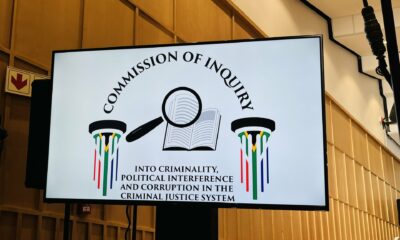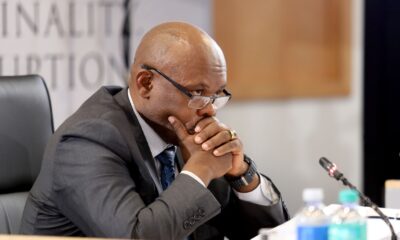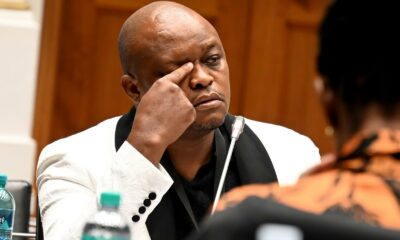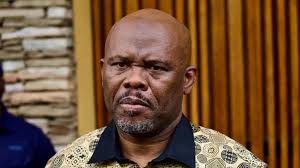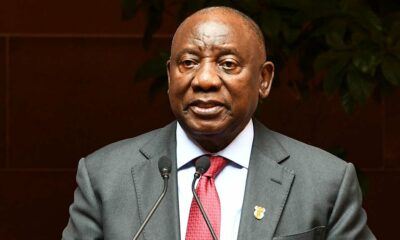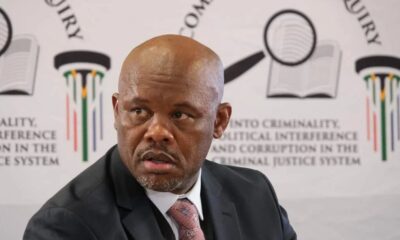News
Dianne Kohler-Barnard Awaits Apology from KZN’s Top Cop, But Will It Ever Come?
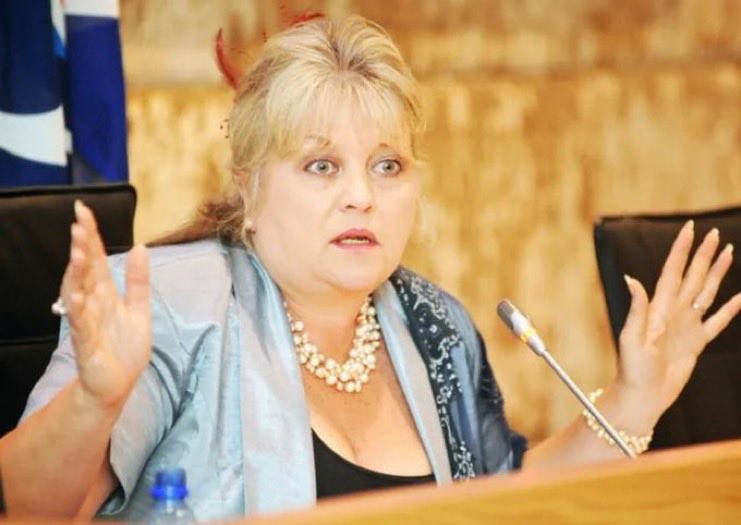
Dianne Kohler-Barnard Awaits Apology from KZN’s Top Cop, But Will It Ever Come?
When Dianne Kohler-Barnard walks into Parliament this week, she’ll be doing so with a mix of resolve and restraint. The outspoken Democratic Alliance (DA) MP says she’s expecting KwaZulu-Natal provincial police commissioner Lieutenant-General Nhlanhla Mkhwanazi to apologise, though she’s not holding her breath.
Her expectation stems from a public spat that’s been brewing for months. During testimony at the Madlanga Commission of Inquiry, Mkhwanazi accused Kohler-Barnard of leaking classified crime intelligence information and even implied she was part of a “criminal syndicate.” The allegations were as bold as they were damaging and for Kohler-Barnard, entirely untrue.
Now, the stage is set for a parliamentary showdown.
A Clash Between Parliament and the Police
The Ad Hoc Committee on Criminal Justice Corruption has called both Mkhwanazi and national police commissioner General Fannie Masemola to testify this week. Their testimonies come amid ongoing concerns about corruption, political interference, and the murky relationship between law enforcement and government oversight.
But for many observers, the real drama lies in the tension between Kohler-Barnard and Mkhwanazi, a political powder keg waiting for a spark.
Last month, Parliament itself became divided over whether Kohler-Barnard should even remain on the committee, given that she was the subject of Mkhwanazi’s allegations. The DA backed her, insisting that her record of parliamentary integrity speaks for itself. Critics, however, warned that her continued participation could compromise the inquiry’s credibility.
“We Cannot Have SAPS Silencing Parliamentarians”
Speaking to Newzroom Afrika on Monday, Kohler-Barnard was candid: she wants a retraction, perhaps even an apology.
“I am hoping that perhaps tomorrow he will finally apologise or retract the claim he made… where he claimed I had broken the law and was part of a criminal syndicate,” she said. “We cannot have SAPS members attempting to shut down parliamentarians doing their job.”
Still, she admitted that her expectations are tempered. “I’m not holding my breath,” she said, her tone suggesting years of experience in the political trenches.
What Sparked This Feud?
The Madlanga Commission of Inquiry into Criminality, Political Interference, and Corruption in the Criminal Justice System has been one of the country’s most closely watched investigations. Chaired by retired Constitutional Court Justice Mbuyiseli Madlanga, it has unearthed startling accounts of misconduct within the police and intelligence services.
During his appearance, Mkhwanazi accused Kohler-Barnard of weaponising classified material to attack the Crime Intelligence division.
“She has a legal obligation to go to the joint standing committee and present there,” Mkhwanazi said. “But she goes publicly and discloses this.”
Kohler-Barnard has fiercely denied these claims, calling them “false, defamatory, and politically motivated.”
Power, Oversight, and Accountability
This standoff isn’t just about one MP and one police general, it reflects a deeper tension in South Africa’s democracy: the balance between oversight and authority.
Parliamentarians like Kohler-Barnard are tasked with holding state agencies accountable, while the police, especially those in leadership are expected to uphold confidentiality and operational integrity. When those mandates clash, as they have here, the fallout can shake public trust.
On social media, reactions have been sharply divided. Some South Africans see Kohler-Barnard as a whistleblower standing her ground; others view her as stirring unnecessary friction within an already strained justice system.
Mkhwanazi’s appearance before the Ad Hoc Committee may offer clarity or deepen the divide. The Madlanga Commission itself has been adjourned until October 13, following the illness of Crime Intelligence head Dumisani Khumalo, whose testimony was cut short last week.
Whether or not an apology is forthcoming, the incident has already reignited conversations about transparency, ethics, and political accountability in South Africa’s policing system.
For Kohler-Barnard, though, the issue remains personal. “All I want is for the truth to stand,” she said.
And in a political arena where truth often bends to power, that may be the hardest apology to earn.
{Source: IOL}
Follow Joburg ETC on Facebook, Twitter , TikTok and Instagram
For more News in Johannesburg, visit joburgetc.com

